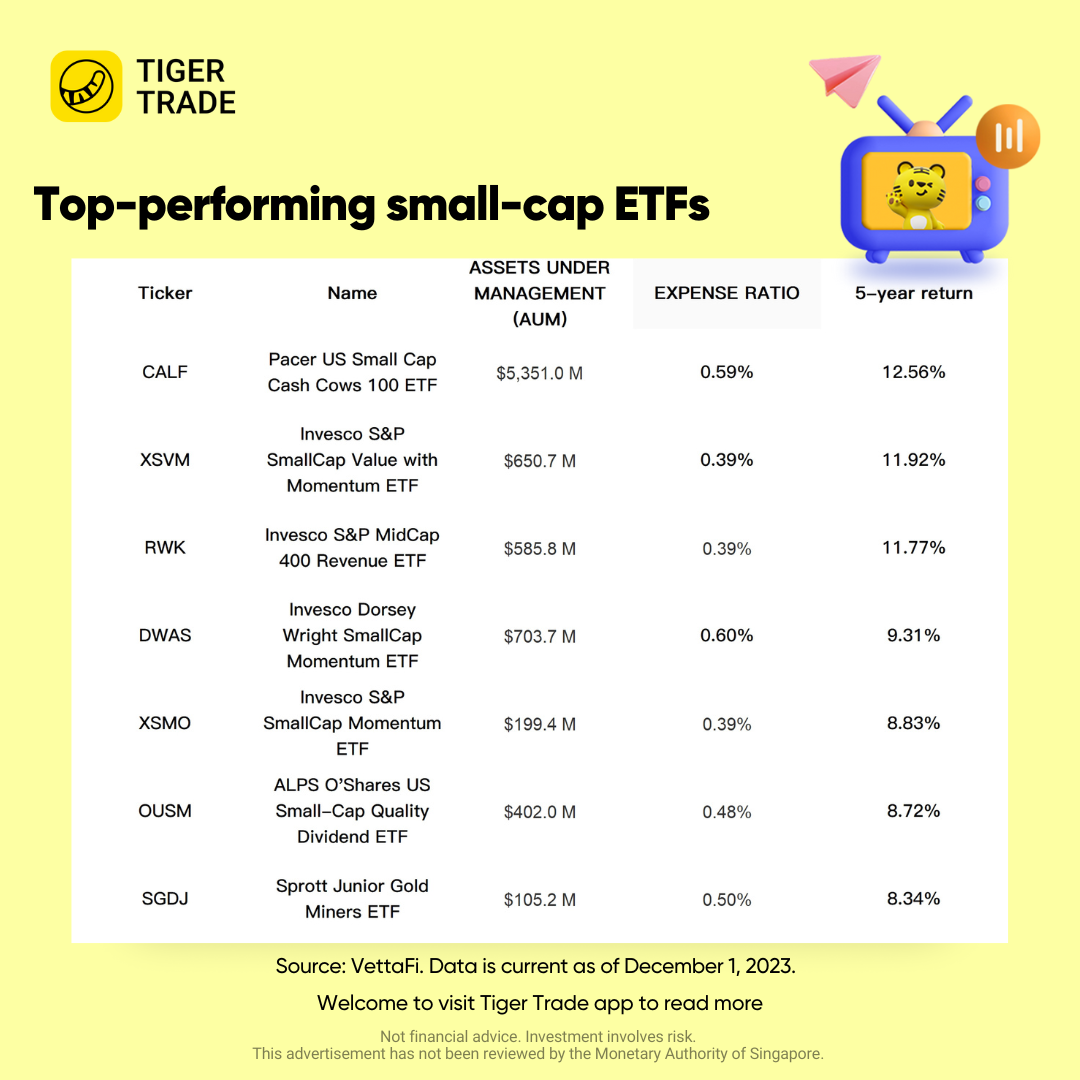Abstract: The recent resurgence of small-cap stocks has reignited interest in the prospect of outperforming the broader market in the coming year. With growing anticipation of a Fed interest rate cut in the next year, small-cap stocks, which trailed for much of 2023, are once again taking the spotlight.
The Russell 2000 Index, representing U.S. small-cap stocks, has surged over 13% since its October low, while the MSCI Europe Small Cap Index has seen a 12% increase since the end of last month. Small-cap stock ETFs are emerging as noteworthy considerations as the new year approaches.
(Small-cap ETFs are exchange-traded funds focusing on investing in small companies with market capitalizations below $2 billion. In contrast to medium or large companies with market caps exceeding $10 billion, these smaller companies have a relatively diminutive scale. Therefore, opting for small-cap stock ETFs essentially encompasses a spectrum of small enterprises within a single investment.)
Driving Forces for Small Caps
Beyond factors like the "Santa Claus rally" and the "January effect," more dependable driving forces underpin small-cap stocks. If the economy remains stable or shows signs of improvement in 2024, the cyclicality of small-cap stocks may prove advantageous.
Dan Lefkovitz, a strategist at Morningstar, notes, "This is the genuine traditional wisdom in the investment realm." He elucidates, "Small-cap stocks are inherently considered cyclical. Consequently, they are more susceptible to macroeconomic factors such as GDP, interest rates, consumer demand, and commodity prices. In contrast, the business models of small-cap stocks are not as robust as large-cap stocks, and their revenue concentration is higher. Analyzing other factors affecting small-cap stocks is also pivotal, including instances where traditional small-cap stock indices exhibit excessive exposure to the guardianship industry."
"I believe the most potent theme propelling the U.S. stock market and global stock markets is technology," Lefkovitz adds.
Analyst Perspectives
It might be premature to glean too much from the upswing in small-cap stocks, but analysts suggest that the underpinning of this trend is linked to the escalating expectations of a rate cut next year, particularly favorable for small-cap stocks.
Panos Mourdoukoutas, an economics professor at the State University of New York Post, remarks, "For smaller stocks, their trading is akin to call options with distant rewards, and lower rates render these rewards more valuable after discounting."
There's also a valuation argument. A month ago, Ed Clissold, Chief U.S. Strategist at Ned Davis Research, stated, "Small-cap stocks are trading near the largest discount ever recorded."
Bill Brewster, a research analyst at Sullimar Capital Group, pointed out this week that "small-cap stocks are taking a comprehensive beating," providing a foundation for seeking potential quality investments amidst adversity. "In general, it's undoubtedly a prime hunting ground right now because they haven't inflated along with the rest."
Jefferies anticipates an 11% rise in the Russell 2000 Index next year, with earnings per share growing by 6.9%, surpassing the comparable forecasts for the S&P 500 Index. The bank also highlights that small-cap stocks are currently relatively cheaper than large-cap stocks. Measured by the price-to-sales ratio, the S&P 500 Index trades at 7.7 times, while the Russell 2000 Index trades at 1.8 times. This may underscore the opportunities in small-cap stocks, with the company allocating one-third of its weight to value stocks.
Best Performing Small-Cap ETFs in the Last 5 Years
The best-performing small-cap ETFs in the last five years have predominantly centered around the small-cap growth ETF space. These ETFs focus on investing in companies expected to exhibit faster stock price growth than other small-cap stocks.
However, investors still need to exercise caution. Mabrouk Chetouane, Head of Global Market Strategy at Natixis IM, points out that factors such as reduced year-end trading volumes, concerns about an economic downturn, and central banks insisting that considering rate cuts is premature have prompted investors to steer clear of small-cap stocks. If negative shocks occur, the weaker liquidity of small-cap stocks could result in heightened volatility.


